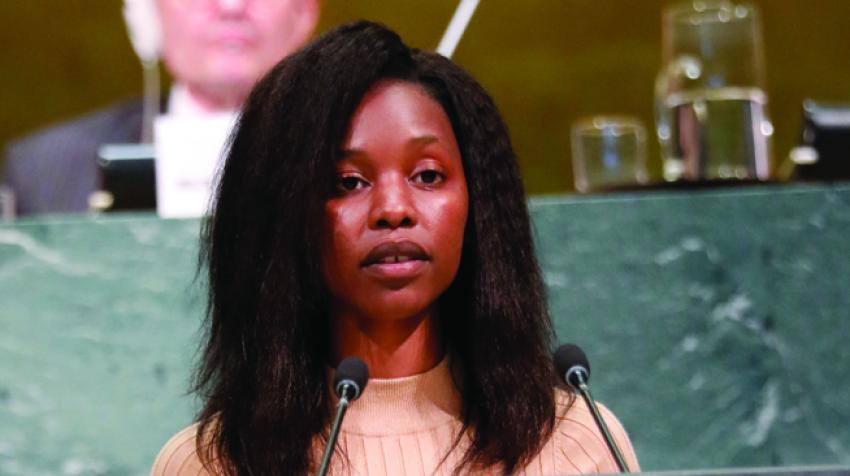January 2018, No. 4 Vol. LIV 2017, Global Citizenship
We live in an interconnected world. It is an unquestionable fact. We cannot afford to deny the intricate ties that connect each and every one of our respective worlds. It is clear that despite our established borders, cultures and languages do not and cannot exist entirely independently. The effects and repercussions of decisions made in one part of the world ripple throughout the rest of the planet and affect us all in one way or another. With this in mind, we are made conscious of the immense responsibility held not just by our leaders but also by us as individual citizens. We ought to come to the realization that whatever duties and obligations we have towards our societies they inevitably carry considerable meaning and influence beyond our immediate surroundings.
The concept of global citizenship is one that I believe should now be more prominent than ever. As we bear witness to the effects of our actions on the environment, on our societies and on each other, being aware of the scale of our impact and using this awareness for good is of the utmost value.
Finding ways to build bridges between our diverse cultures, transcend borders and connect nations and peoples, while showing respect and appreciation for their unique differences, may sound like a tall order that many believe has little chance for success. Yet, in the words of Antoine de Saint-Exupéry, “…he who is different from me does not impoverish me—he enriches me. Our unity is constituted in something higher than ourselves—in Man”.1
So what role in all this does multilingualism play? I am of the belief that language is and always will be an integral part of any culture and that it holds the key to its foundations. To be in possession of such a key to not only one but to multiple cultures is a potentially powerful tool for peace. In any relationship, in whatever context and on whatever scale, communication is of substantial value. To be able to communicate effectively using different languages is not only instrumental in terms of accurate communication, but the journey of acquiring the skill itself will do wonders for your point of view and levels of appreciation of every culture.
From personal experience, I can attest to the changes in my character and attitude after mastering a new language and consequently learning more about a culture that I thought I already understood. Striving to gain knowledge of languages and cultures beyond what I had seen or been told, I learned not to take at face value first impressions and deep-rooted stereotypes. I finally understood that no matter how difficult a task it may seem, learning a new language is a process that, when completed, leaves you incredibly enriched.
I learned of the largely unknown stories behind famous holidays, food and traditions alike. I found that every aspect of these cultures has deeper roots and holds more profound meaning than pretty displays, unique architecture, entertaining music and mesmerizing dances. I finally came to understand why these cultures mean so much to so many people, and why we should all be treating their diverse cultural legacies with the respect they deserve. When you take time to truly understand someone else’s culture, people will take time to understand yours. And thus, before you know it, you have made a positive impact of unlimited scope.
Most of us are familiar with the concept of walking in someone else’s shoes or looking at a situation from another person’s perspective. In reality, however, practising these concepts can prove to be difficult when we know and understand very little about one another. If we could all just take the initiative to learn and therefore understand the languages and cultures that we do not know, the world would be a much better place.
Learning a new language might not seem like something someone with a global perspective in mind would necessarily do. But I reiterate that with every language you learn your world view becomes broader. With this perspective comes a deeper sense of not only an understanding of the language and culture you have studied, but respect for every single language and culture in the world. Once you have taken even a single step in someone else’s shoes, it becomes entirely more difficult to revert to selfishness and prejudice than to be considerate and respectful.
We all need to increase the scope of our consideration and concern beyond ourselves, and our geographical and cultural borders to become and to regard ourselves as true global citizens. What better way to achieve this than by expanding our knowledge and understanding of languages and cultures beyond our own?
Notes
1.Antoine de Saint-Exupéry, Flight to Arras, trans. Lewis Galantière (San Diego, New York, A Harvest Book, Harcourt Brace & Company, 1985), p. 138.
The UN Chronicle is not an official record. It is privileged to host senior United Nations officials as well as distinguished contributors from outside the United Nations system whose views are not necessarily those of the United Nations. Similarly, the boundaries and names shown, and the designations used, in maps or articles do not necessarily imply endorsement or acceptance by the United Nations.




